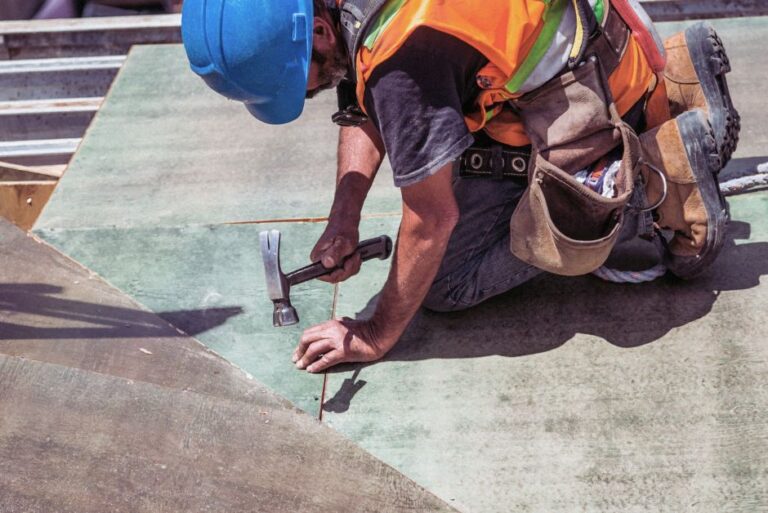31st July 2024 4:26pm
Legislative Council of Victoria, Melbourne
David ETTERSHANK (Western Metropolitan):
Can I just open up by saying that there is nothing in the alleged corrupt practices within the CFMEU that is in any way acceptable. A corrupt union corrupts the union movement and besmirches the union movement.
I think we all agree on that across the chamber, and as such, that corruption, to the degree that it exists – and that is to be determined, should be determined and I have no doubt will be determined – should be eliminated.
Picking up on Ms Terpstra’s comments, for me the construction industry has always been a part of my life. My grandfather was a life member of the Building Workers’ Industrial Union New South Wales branch and later the Queensland branch.
My first job in the union movement was working for the BWIU, now part of the CFMEU, in Queensland. As a bright-eyed and bushy-tailed young communist, amongst my idols, amongst my heroes, were people like Jack Mundey and Joe Owens, who led the BLF in New South Wales.
When we proudly point to all of those beautiful heritage buildings in Sydney as part of our culture and our history, they only exist because of the action that was taken by the BLF in the face of opposition from the state government, construction companies and developers.
I have also had in my life had the pleasure, or the displeasure, of seeing firsthand the work of people like Norm Gallagher, who was profoundly corrupt and who undermined other sections of the union movement, including the BWIU, did dirty deals and ultimately got his comeuppance, and now it would appear that Mr Setka may be about to join that queue.
But in an industry that is incredibly dangerous, where workplace injury and fatalities are endemic, a strong and representative union is critical. It is critical.
Let us recognise that if we look at the data from the International Labor Organisation, the Australian construction industry is the second-most productive in the developed world and it is the safest construction industry in the developed world.
The question in my mind then is: how do we best ensure that this corruption is rooted out within the construction division of the CFMEU? I want to stress that we are talking specifically about the construction division, because the CFMEU in Victoria is obviously more than one union. I think everyone has been happy to lump together this thing which is the CFMEU when in fact there is obviously the Mining & Energy Union, which is not part of this; there is the manufacturing workers union, which is not part of this; there is also the –
(interjection)
Not the maritime. There is forestry, pulp and paper, and that is not part of this.
We are talking specifically about the construction division. If we are looking at how this might move forward, I guess before we work out where we might want to go it is perhaps worthwhile taking a second to reflect upon what is already happening.
As I understand it – and I do not profess to be an expert on all of this – at the federal level we have an investigation by the Australian Federal Police both in terms of organised crime and corruption and also a referral from Minister King federally about corruption impacting upon federal government money in infrastructure projects.
We have the Australian Federal Police as part of the national anti-bikie task force – and people have been keen to talk about the bikies – also subject to active inquiry.
Hopefully at a later date when we are talking about the regulation of cannabis we might like to also talk about the role of bikies there, because I have not heard a lot of opposition or concern about the fact that the cannabis industry is dominated by bikies, and it is a compelling argument for the regulation of cannabis – to explicitly remove the bikie element – but I will not go any further there.
We also have a Fair Work Commission review of all CFMEU enterprise bargaining agreements on Big Build projects and we have the Fair Work Commission appointment of an external administrator, which is every bit plus a little bit more of what an administrator would do to a bankrupted company or a company that is going into administration: they have the power to hire and fire and the power to review all decisions, to look at governance structures, to look at all levels.
Clearly a lot of stuff has been identified that is deeply concerning and that no doubt an external administrator would want to look at. I believe, although it is their policy not to confirm it publicly, that this has also been brought to the National Anti-Corruption Commission. Of course, we also have the department of infrastructure federally looking at the investigation of projects with federal money. So that is just federally.
At a state level we have the formal review into the Victorian government bodies engaged with construction companies and construction unions, which Ms Terpstra just talked about in terms of the Wilson report.
We have the Victorian government’s referral of a range of offences. We have the referral to the IBAC, so we have got ICAC in New South Wales looking into this and we have got IBAC looking into this. We have Victoria Police, referred directly by the government as well as through their involvement in the national anti-bikie taskforce.
I believe there is also the prospect of the Yoorrook Justice Commission investigating the issue of that absolutely outrageous assault on subcontractors from a First Nations employment and training program. It is sort of like ‘take a number’. It is almost cute. I think, by my count, there are at least 11 entities that are concurrently looking at this.
So, the question probably arises in this context: what does this inquiry bring to it?
But before I do that, I want to pick up a comment that Mr Mulholland made this morning. I know it was in slightly different context in terms of your next initiative. You said, and I absolutely respect you saying this, that part of our focus has to be on the members of that union and that you knew people that worked in that union, you had friends that worked in that union. I do too.
There are 37,000 people that are within that construction division who are affected by this process. I think it is really important that, whatever we do, it ensures that all aspects of corruption, all aspects of malpractice in the sector, be addressed.
One of the concerns that I have – I raised this specifically with Ms Crozier, and I appreciate her taking the time to talk to us about this; I genuinely do appreciate that – is that if this has been going on for at least a decade, which I think is the suggestion, then I guess the thing that strikes me is that you cannot really have corrupt unions without having corrupt bosses, because there have clearly been a whole lot of people there.
We did suggest –
(interjection)
I am happy to come to Cbus, because that opens a whole other Pandora’s box. I will actually pick that one up; I will come to that.
You cannot have corrupt unions without corrupt bosses. More than that, there are a whole lot of issues here which an inquiry, as we see it, will not address. How do we address the question of phoenixing, which we know is endemic in this industry?
Builders who just live to die and recycle their finances – (Time expired)
[ENDS]





